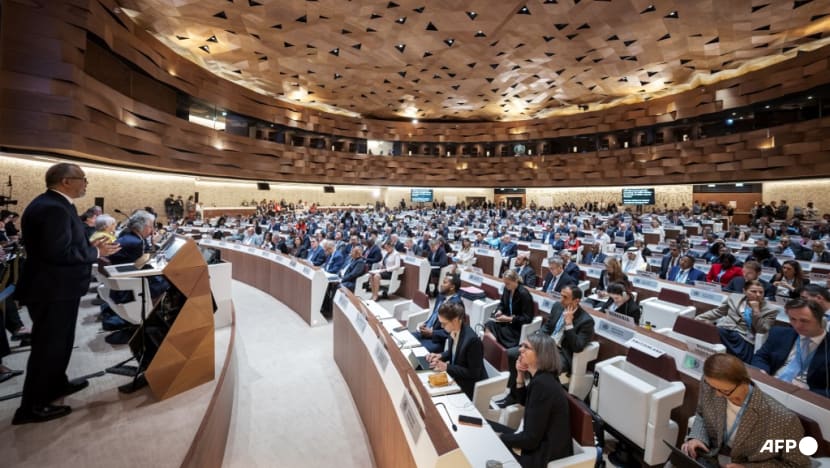'Global problems require global solutions': PM Wong hails landmark WHO pandemic agreement

GENEVA: Singapore is committed to supporting the World Health Organization (WHO) and its role in global health governance, said Prime Minister Lawrence Wong in a video message delivered on Tuesday (May 20) at the 78th World Health Assembly.
"Singapore is firmly committed to an open, stable and rules-based multilateral system. We believe that global problems require global solutions."
The UN health agency on Tuesday adopted a landmark Pandemic Agreement on tackling future health crises, struck after more than three years of negotiations sparked by the COVID-19 crisis.
The accord aims to prevent the disjointed response and international disarray that surrounded the COVID-19 pandemic, by improving global coordination and surveillance, and access to vaccines, in any future pandemics.
Hailing the agreement, Mr Wong said: "This is an encouraging development, both for global health, and for multilateralism.
He added that the WHO has "shown us that international cooperation remains possible in these uncertain times ... It reminds us of what we can achieve as an international community, when countries come together to find common ground, and forge shared solutions."
While the COVID-19 pandemic is "behind us", "risks to global health persist and the need for coordinated action has never been greater", Mr Wong said.
The WHO's decision-making annual assembly adopted the plan on Tuesday at its Geneva headquarters.
"It's a historic day," WHO chief Tedros Adhanom Ghebreyesus told AFP after the vote.
The text of the agreement was finalised by consensus last month, following multiple rounds of tense negotiations.
The United States pulled out of those talks, following US President Donald Trump's decision to withdraw his country from the WHO, a process that takes one year to complete.
"The world is safer today thanks to the leadership, collaboration and commitment of our member states to adopt the historic WHO Pandemic Agreement," Tedros said in a statement.
"The agreement is a victory for public health, science and multilateral action. It will ensure we, collectively, can better protect the world from future pandemic threats."
"It is also a recognition by the international community that our citizens, societies and economies must not be left vulnerable to again suffer losses like those endured during COVID-19."
PATH TO RATIFICATION
The agreement aims to better detect and combat pandemics by focusing on greater international coordination and surveillance, and more equitable access to vaccines and treatments.
The negotiations grew tense amid disagreements between wealthy and developing countries, with the latter feeling cut off from access to vaccines during the COVID-19 pandemic.
The agreement faced opposition from those who thought it would encroach on state sovereignty.
Countries have until May 2026 to thrash out the details of the agreement's Pathogen Access and Benefit-Sharing (PABS) mechanism.
The PABS mechanism deals with sharing access to pathogens with pandemic potential, and then sharing of benefits derived from them: vaccines, tests and treatments.
Once the PABS system is finalised, the agreement can then be ratified. Sixty ratifications are required for the treaty to enter into force.
Precious Matsoso of South Africa, and France's ambassador for global health Anne-Claire Amprou, co-chaired the talks process that led to the agreement.
"It is intended to create a rules-based, future-proof system that will stand the test of time. It does not, and will not, undermine the sovereignty of countries," she told the assembly on Monday.
"In a time of growing geopolitical tensions and seismic changes, this agreement is proof that the world is still together."















